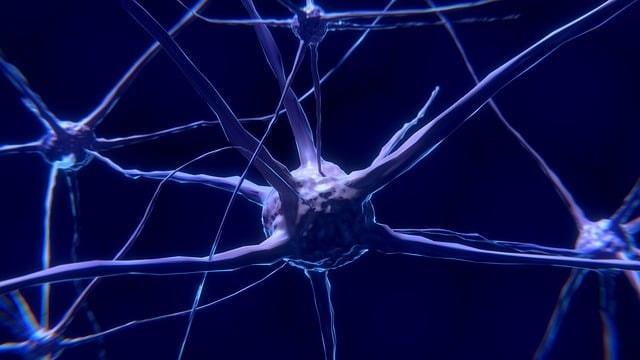Understanding Cognitive Impairment in Men: Causes and Strategies to Restore Mental Clarity
Written by Susan Parker | Updated on May 28, 2025
Reviewed by Susan Parker
Key Takeaways
Testosterone loss contributes to brain fog in men.
Inflammatory conditions can lead to persistent brain fog.
Lifestyle factors like poor sleep worsen brain fog.
Frequently Asked Questions
Key Takeaways
Testosterone loss contributes to brain fog in men.
Inflammatory conditions can lead to persistent brain fog.
Lifestyle factors like poor sleep worsen brain fog.
Frequently Asked Questions
Imagining a time when your mind never fails you in your youth can be difficult. Remembering childhood friends' names effortlessly, never missing birthdays, and staying sharp all day long seems like a dream.
However, as you grow older, your brain also ages.
One of the first indicators of changing cognitive function is experiencing brain fog. This includes feelings of confusion, forgetfulness, and fuzzy thinking that can be overwhelming or draining.
For men, brain fog can be caused by various health conditions such as fluctuations in testosterone levels, stress, and other underlying issues.
Fortunately, there are simple ways to ease brain fog... and some you can start implementing today!
Loss of testosterone significantly contributes to brain fog in men, affecting cognitive function, memory, and mental clarity.
Chronic inflammation and certain health conditions, such as autoimmune disorders and diabetes, can disrupt brain function and lead to persistent brain fog.
Lifestyle factors like inadequate sleep, stress, and an unbalanced diet can worsen brain fog, but targeted changes can help restore sharp thinking.

Brain fog refers to a type of cognitive impairment. Symptoms of brain fog include confusion, forgetfulness, poor concentration, and mental fatigue. It appears as a cloud or "fog" in your mind, hampering thinking, focus, or information recall. While not a medical condition on its own, brain fog often indicates underlying medical issues or deficiencies in nutrition and lifestyle.
People typically notice brain fog in middle age or later in life. Both men and women can experience brain fog due to aging, sleep disorders, chronic fatigue syndrome, inflammation, or even side effects from cancer treatment or other medications.
However, one aspect that men should pay more attention to than mainstream discussions is testosterone decline.
Hormonal changes are a natural part of aging for older adults. In men, testosterone decline can trigger a series of health issues, including muscle loss, poor sleep, bone loss, and depression.
Testosterone levels usually decrease in middle age. After the age of 45, men are at a higher risk of testosterone deficiency. Studies show that declining testosterone levels can impact the central nervous system, leading to cognitive dysfunction and brain fog. 1
This hormone is vital for brain health as it improves blood flow -- delivering oxygen-carrying red blood cells -- to the brain and activates specific neuron receptors, enhancing cognitive function and boosting mental clarity. 2
Women also experience a similar interplay with hormonal imbalances and brain fog, especially related to estrogen. 3
Specific inflammatory conditions can trigger brain fog. These include:
Autoimmune disorders
Chronic fatigue syndrome
Chemo brain
Diabetes
Depression
Diabetes
Arthritis
Allergies
Heart disease
Long covid
Psoriasis
And systemic lupus erythematosus.
Your body's inflammatory response to these illnesses can damage healthy cells by releasing cytokines that breach the blood-brain barrier, affecting information processing, reducing focus, causing memory issues, and mental fog.
In the context of long COVID, women are more prone than men to experience brain fog post-infection. 4
Lifestyle factors can also contribute to the development of brain fog.

Similar to any condition, your lifestyle can underlie your brain fog.
Sleep disorders, stress, and poor diet can heighten inflammation and affect nerve cell health, causing difficulty concentrating, forgetfulness, and disrupting daily tasks.
Men may be more prone to specific lifestyle factors -- like stress and sleep disorders -- compared to women.
Furthermore, research indicates cognitive differences between men and women, with men typically excelling in spatial processing and motor speed tasks. 5
Brain fog symptoms can affect brain functions, leading to various symptoms, as per the Mayo Clinic. These include:
Memory Problems: Difficulty concentrating, recalling names, dates, or recent events. Losing items' locations or losing your train of thought mid-sentence may occur.
Poor Concentration: Struggling to focus on tasks, conversations, or reading. Feeling mentally "scattered" or aimless may happen.
Mental Fatigue: Feeling extremely tired or sluggish, hindering information processing or clear thinking.
Confusion: Experiencing mental disorientation, struggling with decisions, or feeling overwhelmed by simple tasks.
Slow Reaction Time: Taking longer to respond in conversations, solve problems, or complete routine activities.
Lack of Mental Clarity: Feeling like your thoughts are "hazy" or "cloudy," making articulating ideas or organizing thoughts challenging.
Difficulty Multitasking: Struggling with handling multiple tasks simultaneously or shifting focus between activities effectively.
Low Motivation or Mood Swings: Feeling unmotivated, irritable, or emotionally "flat" due to the mental fatigue brain fog induces.
If the above list resonates with you, it's time to discuss brain fog with your healthcare provider.
Several methods can assess cognitive impairment and conditions affecting cognitive function, including:
Cognitive evaluation
Testosterone level testing
Brain scans
Neurological testing
And sleep studies.
Work with your doctor to identify the root cause of your brain fog effectively.
Testosterone replacement therapy (TRT) has shown significant benefits for men in terms of energy levels, mobility, and sexual function.
Men with clinically low testosterone levels can experience remarkable improvements across various health aspects. TRT typically brings increased energy and stamina to combat fatigue, enhanced libido and sexual performance, improved muscle mass with reduced body fat, sharper mental clarity to dispel brain fog, better overall mood and psychological well-being, and stronger bones. These benefits usually manifest within weeks of treatment initiation and continue developing over several months.
Ideal TRT candidates have clinically confirmed low testosterone levels via blood tests, persistent symptoms impacting quality of life, and have typically tried natural interventions without success. Before starting therapy, your doctor will review your medical history, particularly screening for conditions like heart disease, prostate cancer, or severe sleep apnea that may increase risks. For those hesitant about medical intervention, natural approaches such as strength training, nutrition optimization, vitamin D supplementation, stress management, and select herbal supplements can enhance hormone production.

Diet and nutrition play crucial roles in the risk of brain fog and may be at the root of the disorder.
A 2021 review of 16 randomized control trials involving 6276 participants revealed that a vitamin B-12 deficiency increases the risk of cognitive impairment and brain fog. 6 Boosting B-12 levels can be achieved by consuming more eggs, nuts, and dairy.
Celiac disease, an immune system-reactive illness triggered by gluten, can lead to brain fog. Eliminating gluten from your diet can help alleviate these symptoms.
Other food allergies, such as peanuts, dairy, and artificial sweeteners, can also worsen brain fog. Eliminating these foods can aid in symptom improvement. 7
Moreover, incorporating more omega-3 fatty acids in a balanced diet can reduce inflammation, lowering the risks of brain fog and other symptoms.
Omega-3 fats have shown to enhance memory and protect against brain fog. Excellent sources of omega-3 include seafood, nuts, and seeds.
Diet and nutrition also play critical roles in boosting testosterone levels.
Enhance your nutrition by including testosterone-supporting foods in your daily diet. Focus on zinc-rich options like oysters and pumpkin seeds, healthy fats from avocados and olive oil, quality protein from eggs and lean meats, and cruciferous vegetables that aid in balancing estrogen. Supplement with vitamin D through sun exposure or fatty fish and ensure adequate magnesium intake from dark leafy greens and nuts -- all essential nutrients for hormone production.

Given the natural decrease in testosterone levels with age, strategic lifestyle changes can help maintain or increase hormone levels naturally. By focusing on specific areas, you can optimize your body's hormone production for healthy testosterone levels and promote mental clarity.
Research suggests that incorporating resistance training and high-intensity interval workouts into your exercise routine can provide maximum testosterone benefits. Heavy compound exercises like squats, deadlifts, and bench presses have been shown to significantly raise testosterone levels naturally.
Aim for 7 to 9 hours of quality sleep each night, as testosterone production peaks during deep sleep. Maintaining a consistent sleep schedule and creating an optimal sleep environment by minimizing blue light exposure and keeping your bedroom cool and dark are crucial.
Effectively managing stress levels can prevent cortisol (the stress hormone) from suppressing testosterone production. Regular meditation, deep breathing exercises, and engaging in enjoyable hobbies can help alleviate chronic stress.
Consider supplementing with scientifically supported herbs like ashwagandha, which reduces stress while boosting testosterone, fenugreek for improved free testosterone levels, and vitamin D to aid overall hormone level balance.
You can also consider taking certain focus-enhancing supplements -- like resveratrol and bacopa monnieri -- to reduce inflammation and enhance overall brain function.
Support these strategies by limiting alcohol intake, reducing exposure to hormone-disrupting substances, incorporating intermittent fasting, and staying sexually active -- all contributing to optimal testosterone levels and overall vitality.
Brain fog in men is a common yet often underestimated issue that can stem from various causes, including hormonal changes (especially testosterone decline), chronic inflammation, poor diet, stress, and sleep disorders. Symptoms include forgetfulness, confusion, mental fatigue, and difficulties concentrating. Research emphasizes the critical role of testosterone in preserving cognitive function, while inflammatory conditions and lifestyle factors can further hinder mental clarity. Fortunately, targeted lifestyle adjustments, nutritional support, and medical interventions can often reverse brain fog. By understanding its root causes, men can take proactive steps to enhance brain function and overall well-being.
Brain fog in males can result from testosterone fluctuations, stress, sleep issues, specific lifestyle and dietary factors, and inflammatory conditions.
Symptoms of brain fog include memory lapses, foggy thinking, difficulty finding the right words, delayed reaction times, confusion, and irritability.
Studies suggest that a deficiency in vitamin B-12 is associated with cognitive challenges.
It can be. Consult your doctor for testosterone level testing.
Absolutely! Nutrient-rich foods, including omega-3s, vitamin B-12, and anti-inflammatory options, can support brain health and enhance mental clarity.